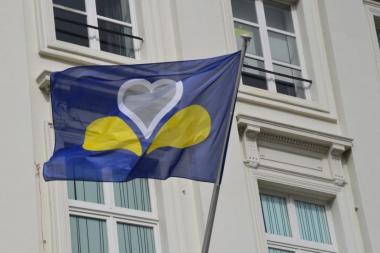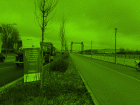
2013-05-07 – After being sworn in on Tuesday morning this week, the new Minister-President of the Brussels-Capital Region presented his General Policy Declaration to the Brussels Regional Parliament this afternoon. Among other things, the Minister-President touched on his priorities for urban development and regeneration.
‘I want to prioritise seven development zones,’ he explained, ‘so as to focus maximum resources on them, including the new urban free zone scheme. The goal is simple but fundamental: to build accessible, adapted housing and public facilities while enhancing the attractiveness of Brussels to businesses.’
The seven zones are the Canal Area, Tour et Taxis, Schaerbeek-Formation, Reyers (RTBF-VRT), Néo (Heysel), Josaphat and Hippodrome de Boitsfort.
For the Canal Area, the Minister-President believes that ’the work already started needs to be continued and amplified,’ because ‘this needs to be the central axis of west Brussels. The first phase in this plan will be completed by June, after nine months of activity at workshops on six pilot sites – Biestebroeck, Birmingham, Sainctelette, Armateurs, Van Praet and Buda – the redevelopment of which should give a boost to the development of the rest of the zone.’
For Tour et Taxis, the Minister-President welcomed the ‘renewal brought about by the renovation of the historic buildings –the Royal Warehouse, the Stores, the Customs Building– and the hosting of cultural activities’ which ‘continues with the commencement of the first large-scale projects, such as the new exemplary building of Brussels Environment.’ He said that ‘the development of this site needs to be sped up in order to give the Region a new district of diversified activities for economic activity, housing, culture and important regional or local facilities.’ He noted that ‘Tour et Taxis will also see the creation of the largest city park since Leopold II’ and that the ‘arrival in Europe, and more specifically at Tour et Taxis (…) of Alain Hubert’s Polaris Climate Change Observatory will position Brussels firmly among those capital cities which are promoting sustainable solutions for the future of cities.’
The Minister-President believes that ‘the foundations also need to be laid for the development of Schaerbeek-Formation and that THE logistical platform for the entire Region should be established there, which will then free up land that the Region can use to increase the density of housing and facilities. The master plan, for which the research period has recently been concluded and which I will shortly be presenting to the Government, proposes not just to locate high added value economic and logistical activities in the north of the zone but also to free up land to develop a mixed-use district in the south. As you will appreciate, this is a vital project for both the Schaerbeek-Formation zone and the Region as a whole.’
















